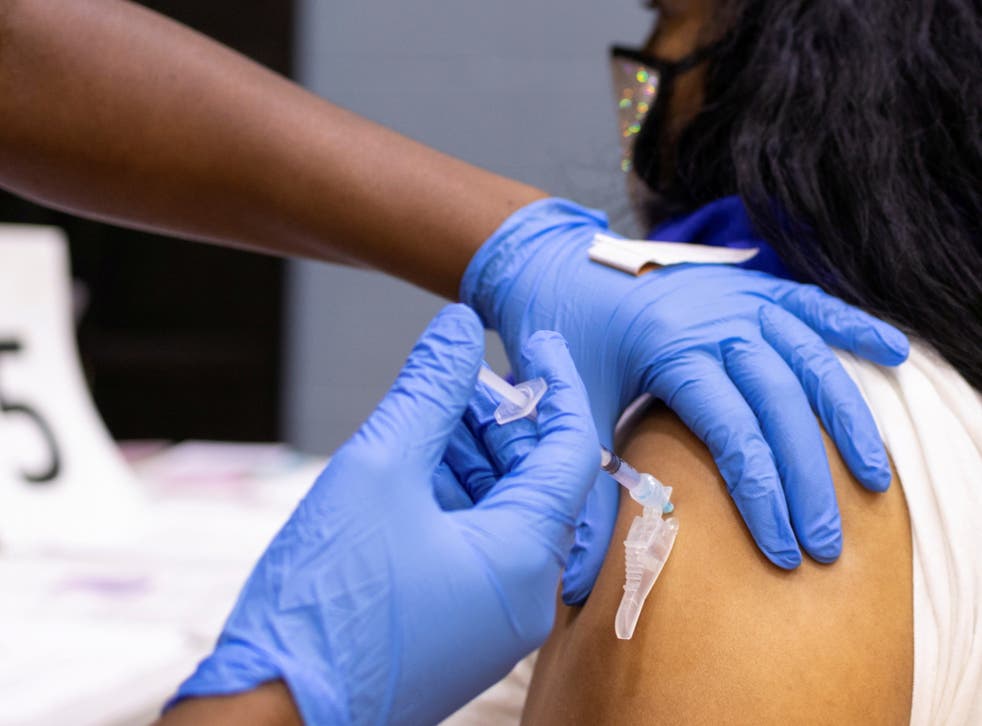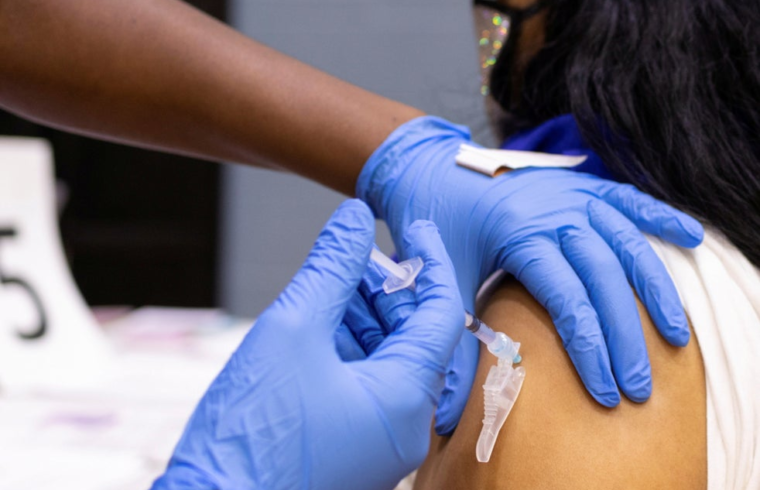UK Covid-19 vaccinations: Latest figures
Health secretary Matt Hancock has said he is “increasingly confident” England is on track to end all social distancing measures on 21 June.
It comes after a study by Public Health England (PHE) found both the Pfizer-BioNTech and Oxford-AstraZeneca vaccines offer “high levels of protection” against the troublesome B.1.617.2 mutation of the virus, first identified in India.
PHE’s study, which took place between 5 April and 16 May, found that the Pfizer jab was 88 per cent effective against symptomatic disease from the so-called Indian variant two weeks after the second dose, compared with 93 per cent effectiveness against the Kent strain. Meanwhile, AstraZeneca’s was 60 per cent effective, compared with 66 per cent against the Kent variant.
Both vaccines were 33 per cent effective against symptomatic disease from the Indian variant three weeks after the first dose, compared with about 50 per cent against the Kent strain.
Following the results being published last night, Mr Hancock said: “I’m increasingly confident we’re on track for the roadmap because this data shows the vaccine after two doses works just as effectively, and we all know that the vaccine is our way out of this.”
Read more:
CDC investigates reports of heart inflammation in vaccinated teens
Some teenagers and young adults who received Covid-19 vaccines experienced heart inflammation, a US Centres for Disease Control and Prevention (CDC) advisory group said, recommending further study of the rare condition.
The CDC’s Advisory Committee on Immunisation Practices said in a statement dated 17 May 17 it had looked into reports that a few young vaccine recipients, predominantly adolescents and young adults, and predominantly male, developed myocarditis, an inflammation of the heart muscle.
The condition often goes away without complications and can be caused by a variety of viruses, the CDC group said, according to reports first published in The New York Times.
CDC monitoring systems had not found more cases than would be expected in the population, but members of the committee on vaccinations felt that healthcare providers should be made aware of the reports of the “potential adverse event,” the committee said in the statement.
Israel’s Health Ministry previously said in April it was examining a small number of cases of heart inflammation in people who had received Pfizer’s vaccine, though it had not yet drawn any conclusions. Most of the cases in Israel were reported among people up to age 30.
Pfizer at the time said it had not observed a higher rate of the condition than would normally be the case in the general population and that a causal link to the vaccine had not been established.

An adolescent woman receives a Covid vaccine at a clinic in Philadelphia, Pennsylvania
(Reuters)
Sam Hancock23 May 2021 08:00
Hancock ‘confident’ England on track for final stage of roadmap
Following the news of Pfizer and AstraZeneca’s efficacy against the Indian variant, Matt Hancock said he was “increasingly confident” that the government was on track for the final stage of easing restrictions in England on 21 June.
“I’m increasingly confident that we’re on track for the road map because this data shows that the vaccine after two doses works just as effectively [against the Indian variant], and we all know that the vaccine is our way out of this,” the health secretary said in a statement on Saturday night.
He added that the data showed that getting both doses of the vaccine was “absolutely vital”.
It comes after Mr Hancock celebrated the NHS administering over 50 million Covid jabs yesterday, thanking “the whole team” for their efforts.
Sam Hancock23 May 2021 07:47
Covid vaccines offer ‘high level of protection’ against India variant – study
Hopes of loosening lockdown restrictions in England on 21 June have been boosted by new research suggesting two coronavirus vaccines give effective protection against a more infectious strain first detected in India.
Both the Pfizer and Oxford-AstraZeneca jabs were found to be almost as effective against symptomatic disease from the Indian-origin strain, designated B.1.617.2, as they were against the B.1.1.7 mutation, which remains the dominant strain across the UK and was first detected in Kent.
The study, published by Public Health England (PHE) on Saturday, comes after concerns that the India variant could throw into doubt the lifting of all restrictions in four weeks’ time.
My colleague Matt Mathers has all the details:
Sam Hancock23 May 2021 07:40
Good morning, and welcome to The Independent’s rolling coverage of the pandemic.
Sam Hancock23 May 2021 07:39









